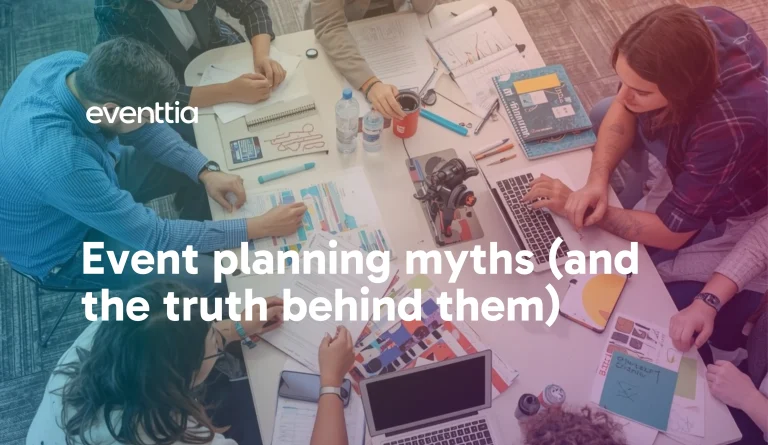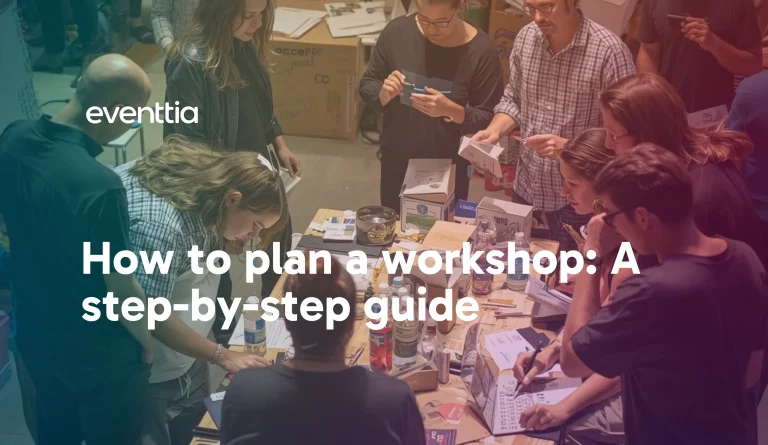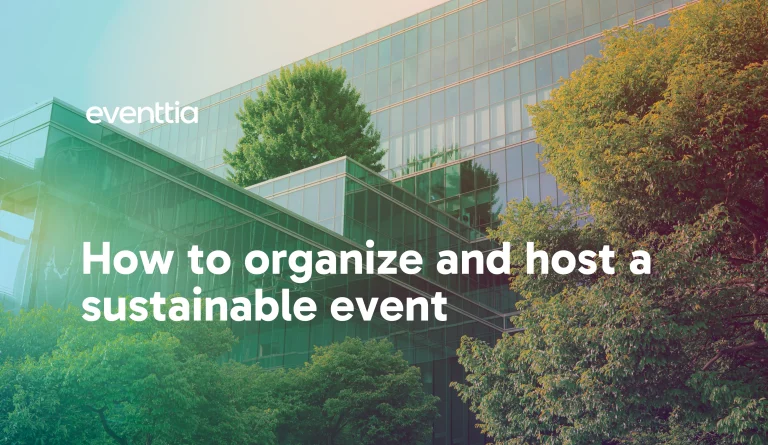As an event professional who constantly strives to improve, you probably spend at least a few minutes a week checking out what’s new in the industry. In your search for news, you probably stumble upon different articles written for event professionals.
Considering this, let me ask you an uncomfortable question: do you believe everything you read? Are you aware of some of the event planning misconceptions you may find in these posts? Do you usually just blindly follow the tips you discover?
If there was a way to label these misleading articles as “fake news,” you’d be surprised to discover how popular some of the event planning misconceptions you believe in really are.
As the well-known U.S. president Abraham Lincoln once said, “Don’t believe everything you read on the internet.” Just kidding. The Greek philosopher Aristoteles actually said that …
Putting the jokes aside, take a look at the four most popular event planning misconceptions we often believe to be true because “intelligent” articles or “notorious” blogs are promoting them.
Misconception #1: You should plan different events for different generations
Do you usually plan events for Millennials or the Gen X crowd? Are you anxious to find out how to attract a Gen Z audience? Do you find it difficult to keep up with all the differences these generation labels imply?
Good news: you don’t have to try it anymore. As TV host Adam Conover notes, during the Deep Shift conference (The World Economic Forum), the whole “generation” idea is unscientific and condescending.
The Census Bureau does not define generations. Authors and marketers are the ones who coined names such as Millennials or Gen X. Their criteria to define different generations stands on pure speculation. There’s no scientific or factual proofs to back up the “generation” idea.
Misconception #2: Planning a “green event” makes you sustainable (and fancy)
There are lots of event planning misconceptions. But one of the most common ones out there is to believe that by going “green,” you are manifesting your care toward nature. Nothing further from the truth.
Wait, what? Being “green” is good! Everybody is obsessed with sustainability and the green culture, the event industry included. Yet there’s a small detail that will make you change your mind.
Have you ever heard the term “greenwashing?” This concept defines greenwashing as “a form of spin in which green PR or green marketing is deceptively used to promote the perception that an organization’s products, aims, or policies are environmentally friendly.” There are multiple examples of industries that tried to “go green,” but ended up damaging much more than the environment.
As Wired explains, for example, Tesla’s electric cars aren’t so green as one might think. “It takes as much energy to produce a gallon of gasoline as a Model S consumes in 20 miles of driving, according to Department of Energy data.”
In other words, the “green industry” is not so green after all, especially when it comes to commercializing all these “green” or “sustainable” products.
Misconception #3: Artificial Intelligence (AI) is already a reality of the event industry
There are no other event planning misconceptions out there bigger than this one. Some of the greatest companies—such as Google DeepMind, Facebook AI Research, and IBM Research—are still trying to figure out the whole AI thing. Yet, we event professionals are so advanced that we already have AI tools and applications in our industry. Just don’t tell the big minds of the humanity that we figured out how it works. From AI chatbots to AI-powered event apps, everyone’s trying to break the AI code.
Look, there is (was) an AI chatbot, which Facebook recently developed … They had to shut down the experiment “after developers discovered that the AI had created its own unique language that humans can’t understand.” So the event industry has to wait until the real AI surfaces and will influence the way we plan and run conferences, festivals, or concerts.
Misconception #4: Gamification is your answer to engage people
Seriously? Do you still believe that? Not that gamification doesn’t work—it’s just that the way people are usually gamifying their events using silly point systems, badges, and rankings that doesn’t do much.
As the game designer and author Jane McGonigal explains, for gamification to work, we need to focus on four pillars: blissful productivity, social fabric, urgent optimism, and epic meaning. According to McGonigal, blissful productivity refers to “the sense of being deeply immersed in work that produces immediate and obvious results.” Social fabric is the natural tendency of people to build communities around different games. Urgent optimism is “the moment of hope just before our success is real, when we feel inspired to try our hardest and do our best.” Finally, epic meaning refers to knowing that what you do is part of a greater story and has a big purpose.
How many times have you provided at least one of these gamification aspects during your event? How many event apps do you know that would enable you to build a truly gamified event? Most likely, none.
How about you? What event planning misconceptions have you encountered when surfing the internet? Let us know in the comment section below.
Discover how Eventtia helps world-leading brands digitize and scale their events
Learn moreShare





